I admit to having a starry-eyed view of what a politician should be. First of all, he or she should be someone who understands what the root of “politician” is—policy. It is not messaging or ideology; those tasks belong to the media or religion. A politician should intend to get things done, not simply pontificate. And he should understand that getting things done almost always requires compromise.
If you can’t compromise, you should examine yourself. Unwillingness to compromise suggests a rigidity of thinking or, to put it another way, a failure to have an open mind. By the way, that does not mean sacrificing your principles. It means giving a little to advance those principles. If you can’t give a little toward that goal, you are probably deceiving people or, worse, deceiving yourself; i.e., you don’t really hold your principles dear; you’d rather sacrifice them than give ground.
In my starry-eyed view of politicians, I see them working to improve the lot of all their constituents, and by “constituents” I mean everybody they have a right to serve, not just those that elected them and not just those that funded them. And by the way, if the politician prioritizes his donors—the individuals or organizations funding his election or re-election—then his place in history may be written off as “the best politician money could buy.”
Beyond having a “right to serve,” a good politician has a duty to serve those constituents. That duty is demanding. It requires the politician be diligent, to research all sides of issues, to test those sides and make impartial judgments.
Now, it is almost certain that a politician will lack the time or resources to personally investigate all the issues confronting him. He will need help. A good politician, therefore, must be a fine judge of character and qualifications, so he can select a competent staff: men and women who can dig into issues and offer sound advice.
Besides staff, the politician must also listen to lobbyists and other petitioners. He must balance their requests, their demands, against the public good.
Sadly, it is not enough for a politician to have good judgment, to advance good principles, to correctly gauge the input he gets; he must be persuasive. If he can’t persuade people to follow, either his arguments are faulty (and should be revisited) or he should seek another profession—teaching, for example. For politicians, persuasion generally involves making speeches, and therein lays a pitfall.
An accomplished orator can mesmerize, can excite, can get people to follow … follow him to Hell. Thus, the good politician must be wary of his own motives. He must strive to convince people by the logic of his arguments rather than the force of his rhetoric, by his bombast or shrillness.
My high school history teacher said more than once that the first duty of a politician is to get elected. I don’t think that is quite right, although I admit it is a crucial duty. I think the first duty must be to run for office for the right reasons. If all you want is money or fame or to serve a narrow constituency, you may get elected and accomplish those things, but your political life will be a waste. You will do more harm than good.
One way I judge if a candidate is a good politician is by his political ads. If he say what he plans to do, what he hopes to do (and admits he needs help to do it), and truthfully tells of his accomplishments, he’s my man. If his ads focus on the other guy, disparaging him or belittling him—or worse claiming falsehoods about him—then I judge the candidate a defective, deceptive opportunist, willing to strip the “kind” out of “mankind,” a man who believes the end justifies the meanness.
Any candidate who wants to be a good politician should be wary of appealing too strongly to his party’s base. A good candidate should reach beyond that base for supporters, for those he wants to persuade. Chances are the base will follow along meekly, anyway.
Considering my starry-eyed view, you may be surprised by my take on how moral a politician should be. Yes, he should be discreet, or try to be. But I don’t believe moral failings should disqualify a politician, as long as 1) they don’t influence his policies and 2) he isn’t hypocritical—railing against the very things he does in private life. Politicians are people, and people are human, have human failings. We, the electorate, should cut politicians some slack when it comes to morals. And we should be especially wary of those who condemn and vilify a politician about immoral behavior. Time and again, it has turned out that such decriers are themselves guilty of the sins they decry.
Like many, I register with a particular political party; for this discussion it doesn’t matter which. Political parties offer their members an opportunity to share views, to reinforce beliefs, to learn about their candidates, and yes, to party.
Naturally, I favor candidates from my own party and view the opposition with a certain lack of charity. Nevertheless, I have voted, God knows why, for a politician from another party. Strangely, I’ve not regretted such a vote. It seems good politicians come in all stripes. But just between you and me, I think most of the good ones belong to my party.
Sign up to receive updates and the Friday File email notices.
Support local, independent news – contribute to The Fallon Post, your non-profit (501c3) online news source for all things Fallon.
The Fallon Post -- 1951 W. Williams #385, Fallon, Nevada 89406


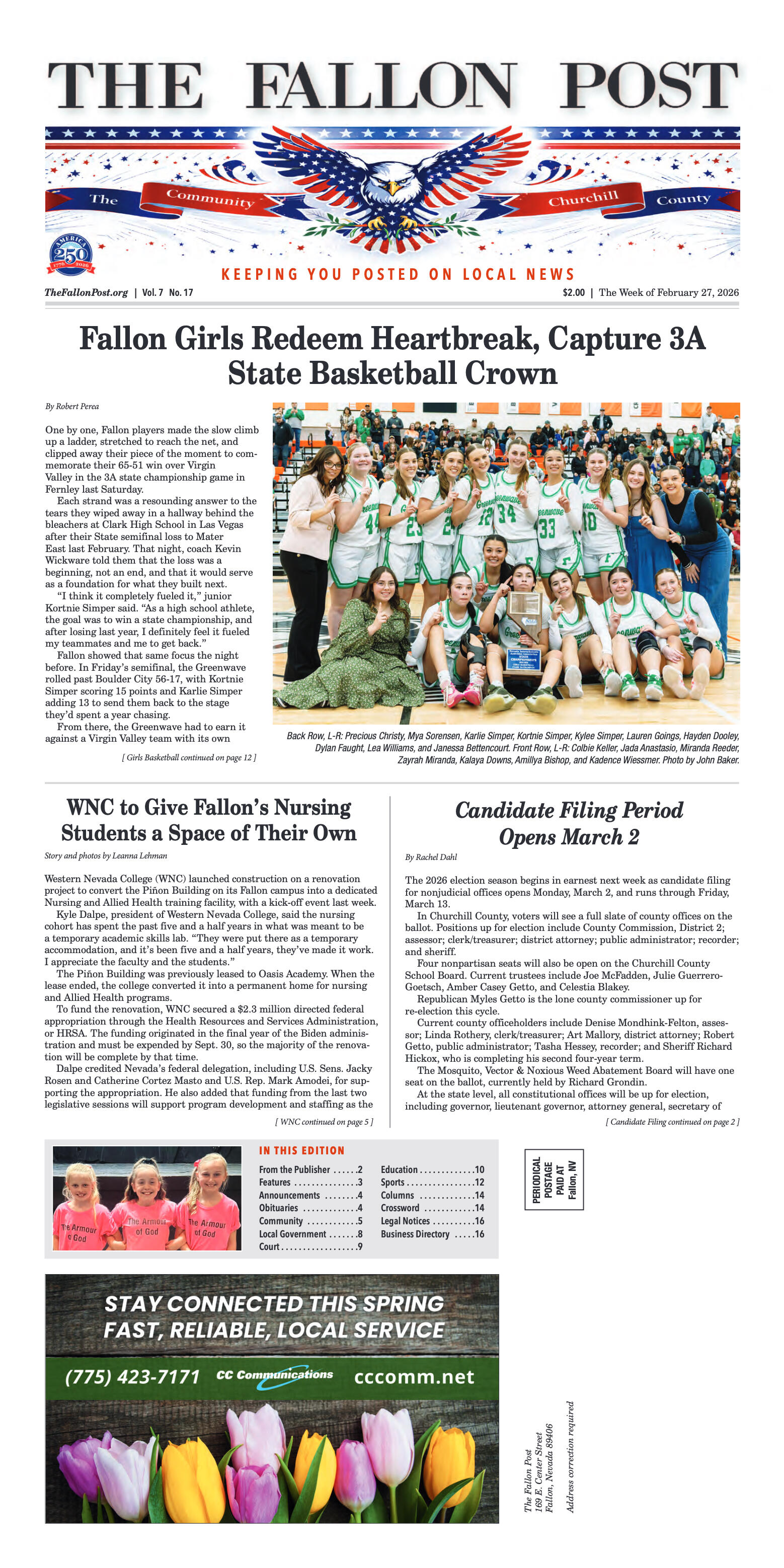


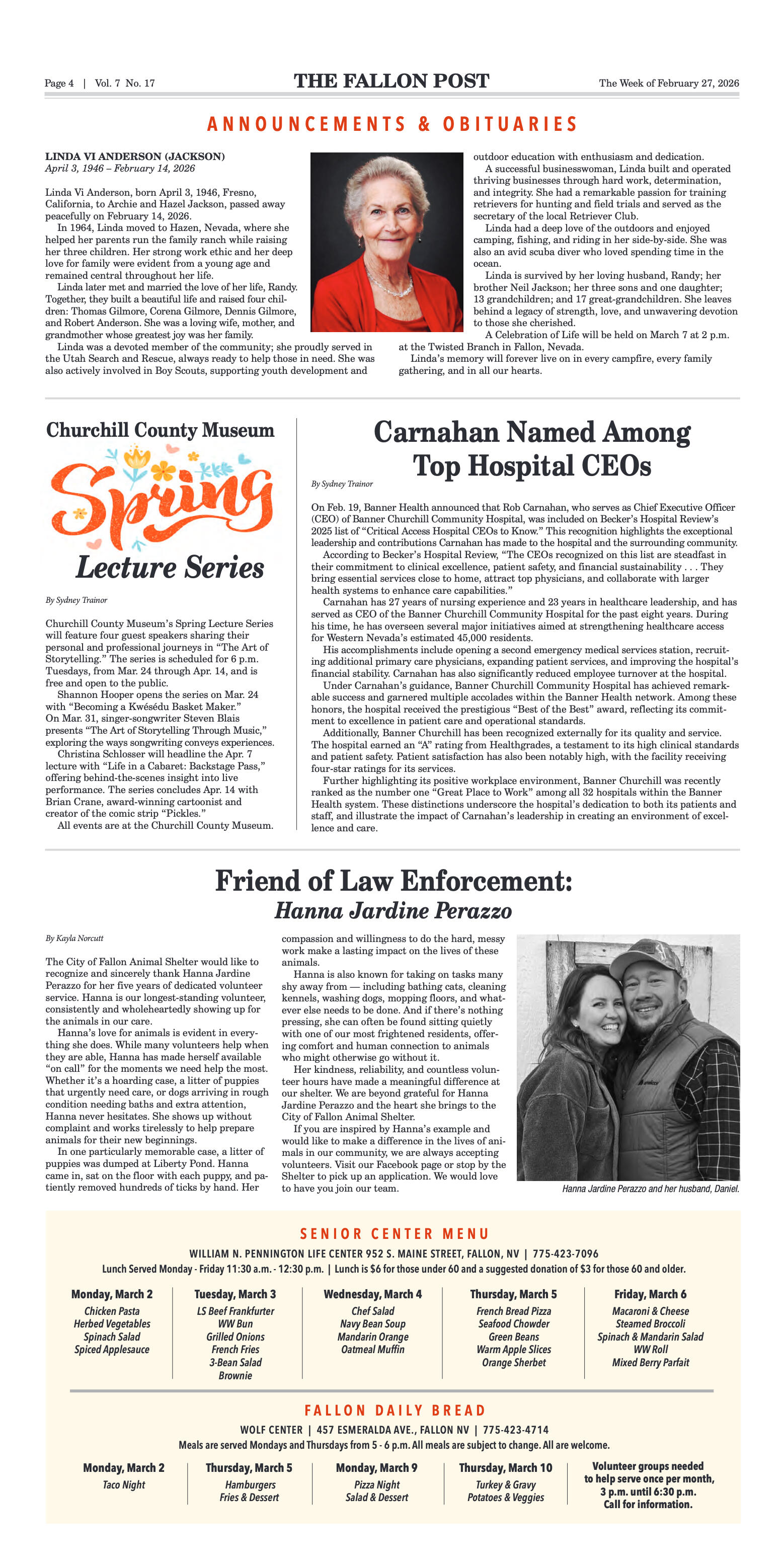
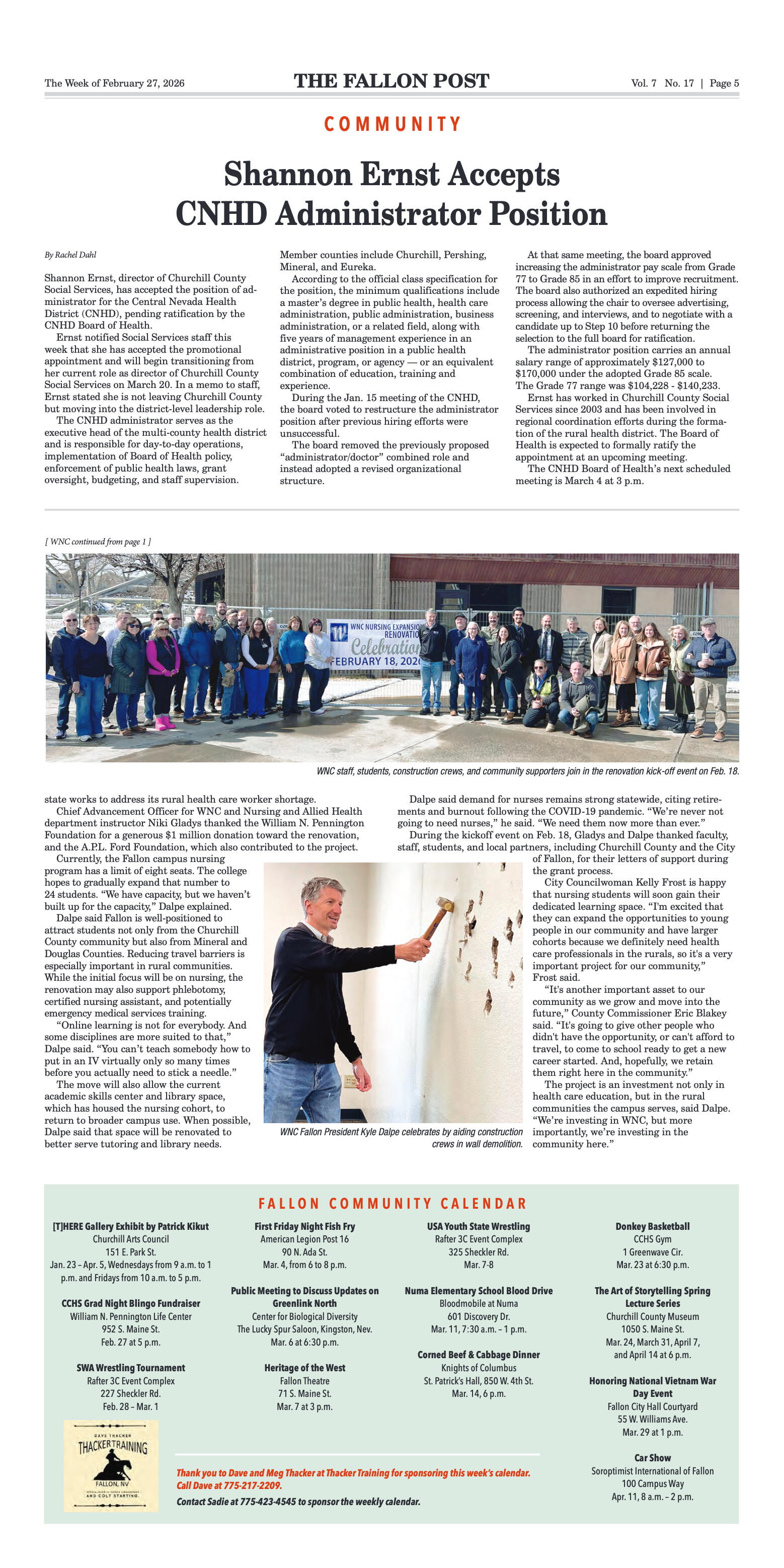


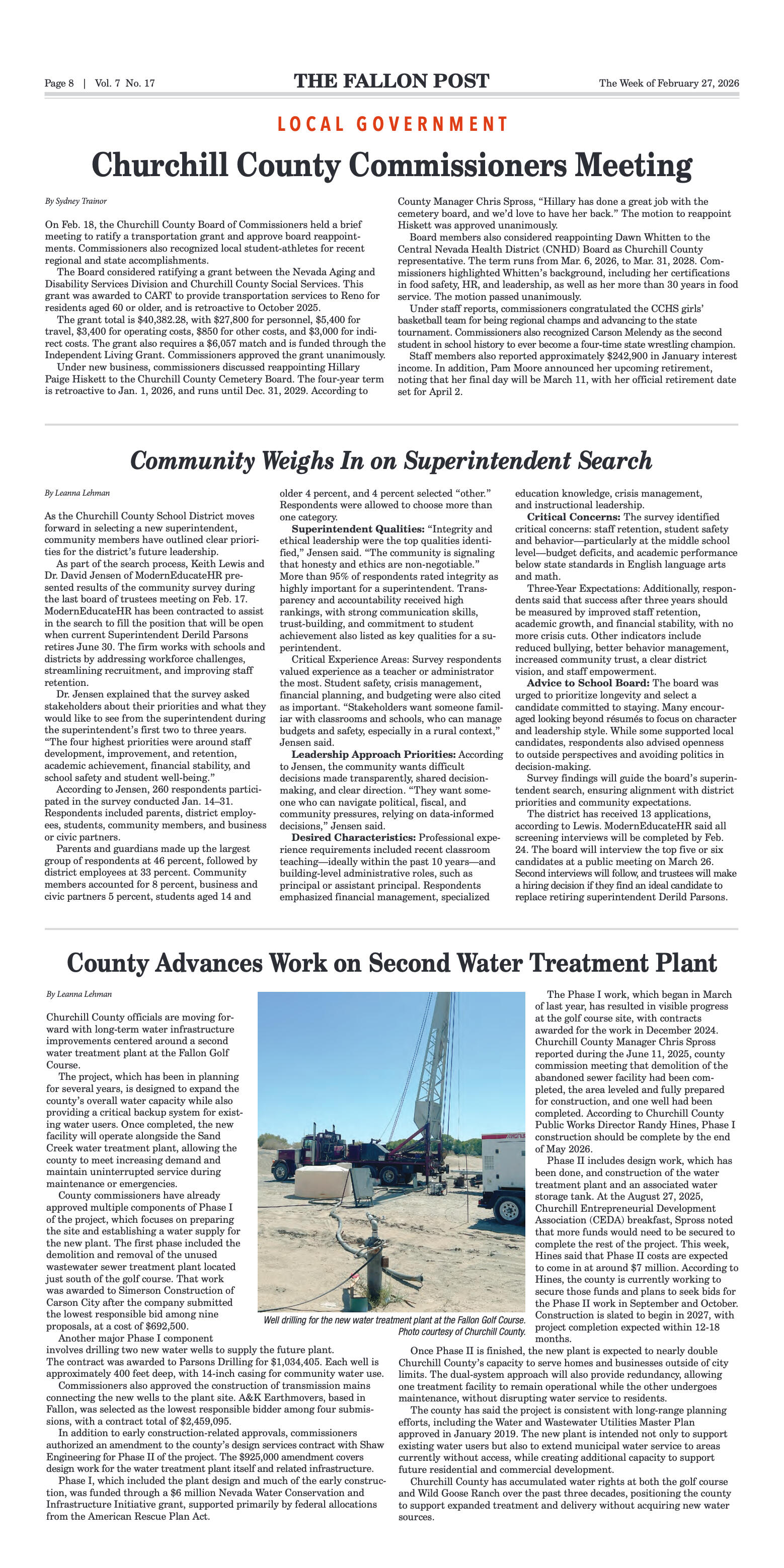
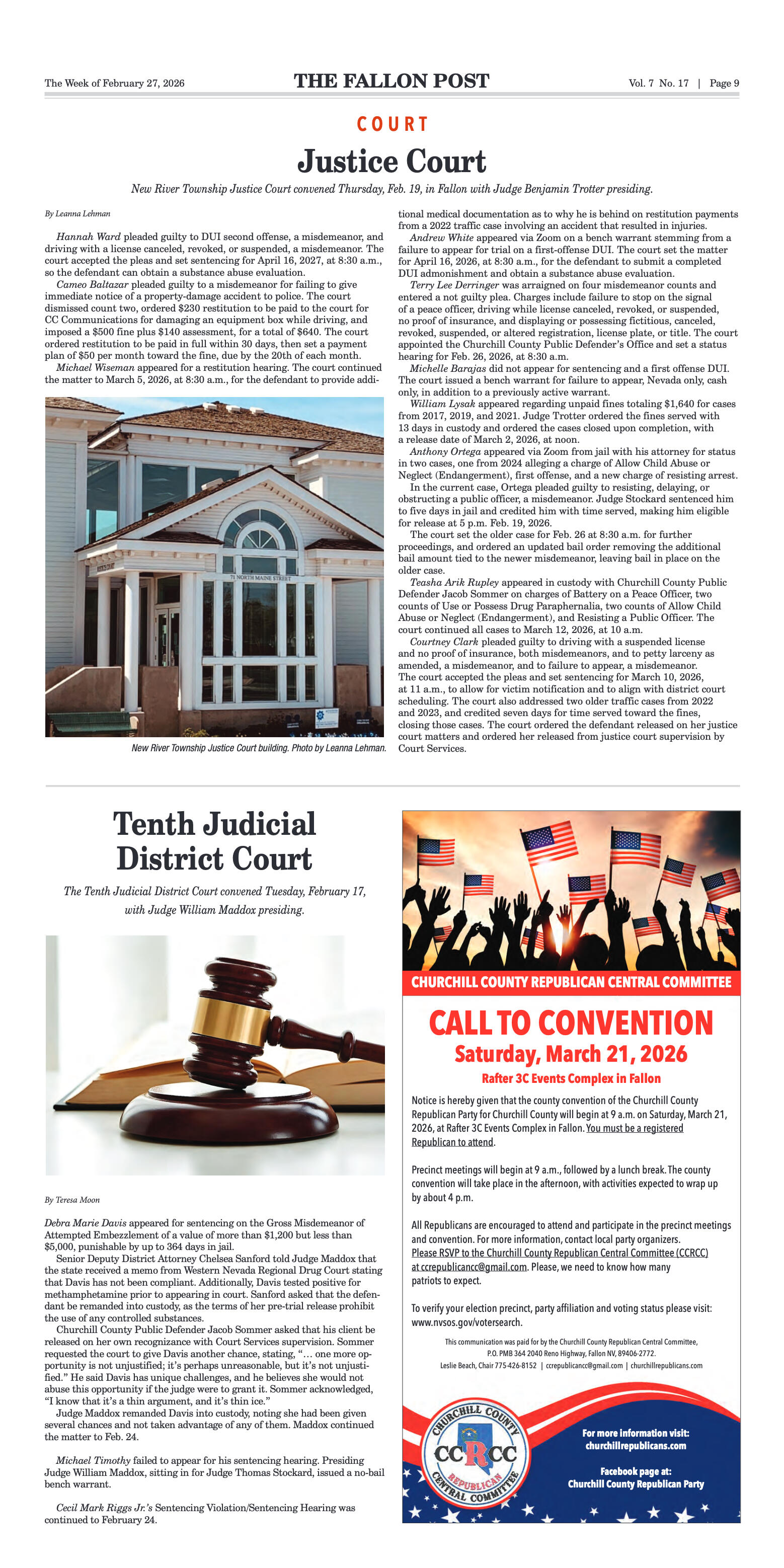

































Comment
Comments